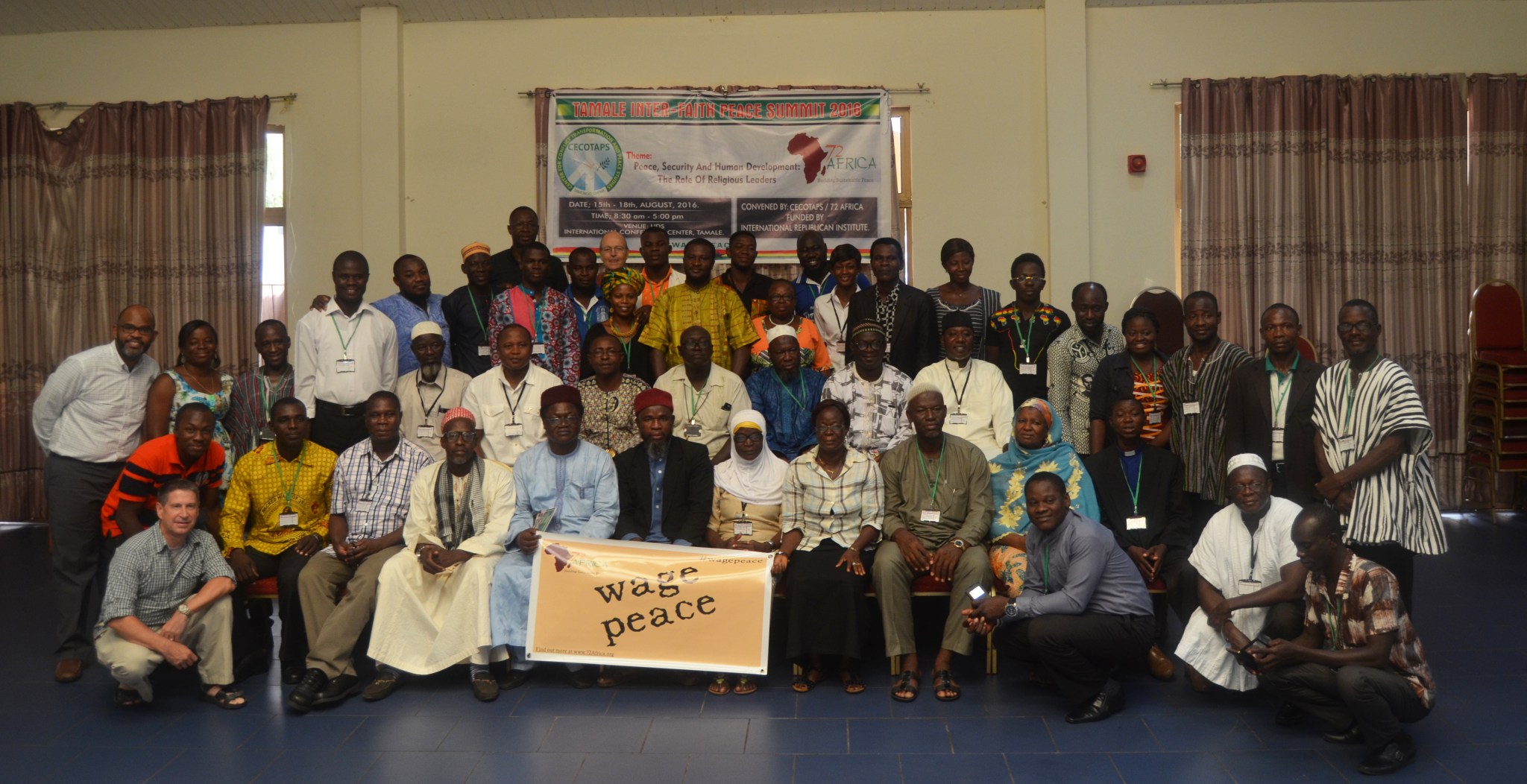
Ghana has been praised over the years for its stability, development and democratic elections.
Since the start of its Fourth Republic in 1993, Ghana has experienced three presidential transitions, including transitioning peacefully from one party to another. But there is concern that the 2016 presidential election could bring about election violence. And far from the bright lights and tourist attractions of Accra, is the northern region of Ghana that has experienced its share of violent outbreaks over the years. Chieftaincy disputes and land ownership have historically been a major source of the ethnic conflict in the northern region, but many fear that election violence could feature this year. Additionally, recent reports have stated that ISIS is recruiting Ghanaians in the northern region, leading to more concern about violence in the region.
In an effort to confront the growing insecurity in Ghana’s northern region, IRI recently supported an Inter-Faith Peace Summit in Tamale. The summit was organized by 72 Africa and the Center for Conflict Transformation and Peace Studies (CECOTAPS). The summit was led by Reverend Clement Aapengnuo, a Catholic priest and Director of CECOTAPS in Damongo, Ghana. Rev. Aapengnuo and CECOTAPS have been active in addressing ethnic and religious conflicts in the northern region, including the Bawku peace process, which brought together two ethnic groups that have been in conflict for over 40 years. The goal of the summit was to bring religious leaders, civil society organizations and women together to start an inter-faith dialogue to address the conflict in villages and communities. Ghana is a very religious country with businesses carrying religious themes and bumper stickers on cars signifying the driver’s house of worship. Religious leaders and institutions in Ghana are well respected; using those leaders to address conflict in the northern region will help spur dialogue and potentially reduce the level of conflict in northern communities.
During the summit, 45 religious and community leaders collaborated to develop a strategy for addressing conflict in their community and how the two major religions – Islam and Christianity – in the region can work together. One strategy promoted by participants were inter-faith services where Christian leaders would speak at mosques and Muslim leaders would speak at a church. The goal would be to talk about how the two religions can co-exist in the same community and break down stereotypes that are often used to separate people of different faiths.
I was impressed with the level of discussion and passion in the room among the leaders, especially Millicent Atugba of the Council of Catholic Women in Tamale. Mrs. Atugba is very passionate about encouraging women to be conflict mediators in their community. She has been “waging” peace in northern Ghana with women from other religious organizations for years. Most of her activities focus on engaging youth and are targeted towards election related violence.
As a follow up to the summit, Rev. Aapengnuo will be conducting three workshops in each of the northern regions of Ghana. He will be meeting with local community leaders and summit participants to check-in on potential episodes or warning signs of electoral related conflict. These activities will ensure that summit participants and religious leaders are able to catch potential conflict before it engulfs the community. The eyes of the international community are fixed on Ghana and experts are waiting to see whether the country will continue in its traditions of peaceful democratic elections or follow the example of nearby countries that have experienced election-related violence.
Top